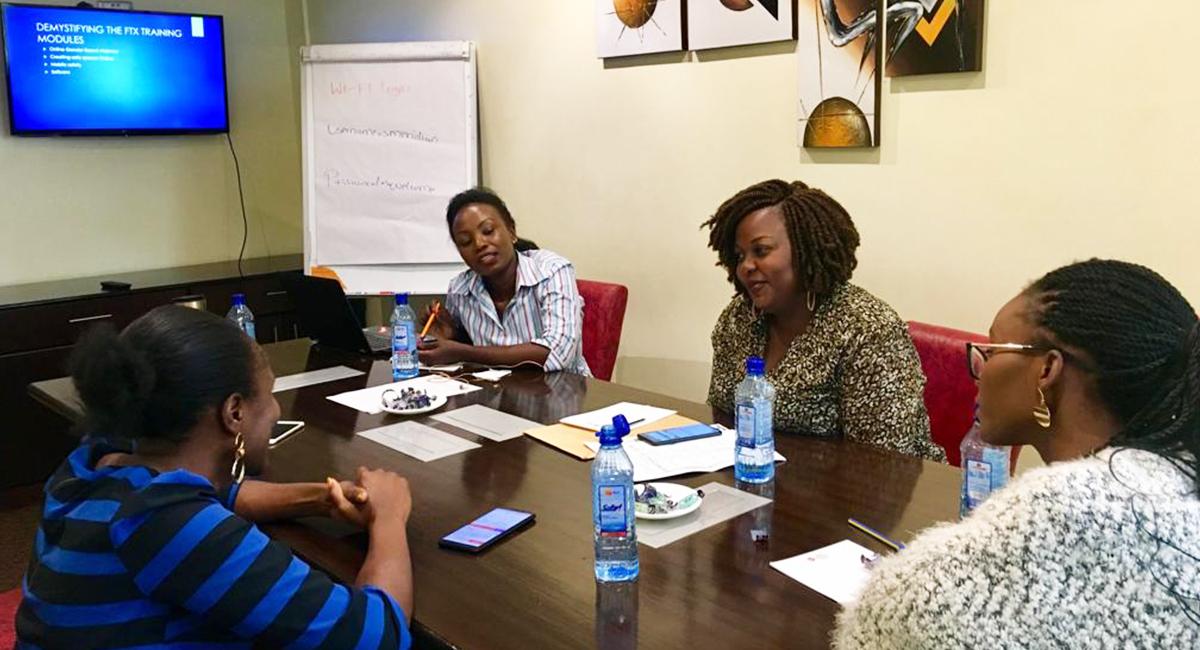Never has there been a need for digital security as the present time. When I embarked on a journey to become a digital security trainer, my mail goal was to help keep women and young girls safe online.
I never thought that in my wildest dreams that this desire and passion would take me around the world. Digital security has become a basic need, in the current society that we live in and especially in Kenya where online violence is rife. This vice is targeted at women and especially women with voices online.
The goal of the perpetrators being to silence women online and the fact that we leave in a patriarchal society does not make it any better. Most of its victims shy away from the online platform and those who remain, resort to self-censorship. This leads to the widening of the digital gender divide gap. Despite being lauded for its vibrant and dynamic online scene, Kenya still grapples with gender disparities in the online space.
This ‘‘disease’’ can be defined as the digital gender gap, which refers to the inequality between men and women with regards to access and use of the internet. But it’s ironical that we are encouraging women to be online yet the same platform is so toxic. Hence the critical need for digital security.
Through the generous funding of the Association for Progressive Communications (APC) I was able to organize for a focus group with four other digital security trainers. Before I move forward, I can hear someone asking what is APC? No worries I got you covered. APC is a worldwide network of social activists who use the internet to make the world a better place. APC is both a network and an organization. APC members are groups working in their own countries to advance the same mission as APC.
The main purpose of bringing together women digital security trainers, was more to focus on forming a community of feminist digital security trainers in Kenya. A community that we can rely on in this unique field, taking note that we are very few professionals in this field.
Building a community also organically increases the impact of the trainings we conduct since we are able to get valuable feedback from each other regarding our trainings. Additionally, the purpose of the focus group was to introduce some of the Feminist Tech Exchange (FTX) training modules, called the FTX: Safety Reboot to the digital security trainers. Feminist Tech Exchange: Safety Reboot is a training curriculum made up of several modules for trainers who work with women’s rights and sexual rights activists to use the internet safely, creatively and strategically.
It is a feminist contribution to the global response to digital security capacity building and enables trainers to work with communities to engage technology with pleasure, creativity and curiosity. Trainers should be familiar with the obstacles and challenges faced where misogyny, censorship and surveillance are restricting activists’ freedom of expression and ability to share information, create alternative economies, build communities of solidarity and express desires.
The FTX: Safety Reboot explores how we occupy online spaces, how women are represented, how we can counter discourses and norms that contribute to discrimination and violence. It is a feminist contribution to the global response to digital security capacity building, bringing the APC Women’s Rights Programme’s unique methodology and approach.
This journey will also see me produce four podcasts on each of the Following FTX modules, mobile safety, self-care, online gender-based violence, and creating safe online spaces.
Podcasting is the digital medium built on the power of conversation. The aim of producing these podcasts is to try and localise, adapt the FTX modules to the Kenyan context and to demystify the terms which are not familiar. The FTX modules will go a long way in helping digital security trainers in implementing their trainings effectively.
Online harassment comes in so many shapes and sizes, and can target its victims via many different mediums and platforms, and it can be overwhelming to think about how to prepare for and respond to online attacks. Hence the need for trainers to come up with different ways and means of training.
Cecilia Maundu is a Specialist in gender digital security training and consultant. With a focus on training women on how to stay safe online. She is also a broadcast journalist, as well as a User experience trainer, (UX). Collecting user information feedback and sharing it with developers all in the quest of making technology usable for digital security trainers and human rights activists. She is also the current elected secretary general of the International association of Women in radio and television.
Twitter: @ceciliamaundu | LinkedIn cecilia maundu



